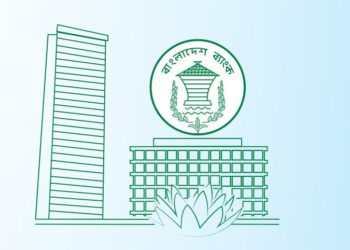Md Hasanur Rahman Tanzir- Another name for human rights culture is non-discrimination; a way of life that believes in the rights and dignity of all. Mahatma Gandhi said that the way to understand how civilized a nation is is to examine the condition of the minorities of that nation or country. To calculate how close they are to the majority in terms of enjoying their rights. The main idea of the mass uprising on August 5 was to build a society without discrimination. Perhaps in view of that, the government is trying to provide overall security for the peaceful celebration of Durga Puja this year. This is undoubtedly satisfactory and deserves applause. Despite this, it is not unreasonable to think that the festive atmosphere of Durga Puja has declined somewhat this time.
While explaining the incidents of communal violence that have occurred after August 5, it has been said that the reason for the attacks is more the religious identity of the victims than their closeness to the Awami League. Even the government has said the same thing, which can create obstacles in the victims’ access to justice. Everyone wants those who abused their power and increased inequality in society during the previous government to be identified and brought to justice in a systematic manner. But the ongoing attacks, cases and arrests, ignoring the rule of law and the judicial system, are disrespecting the very motto of the mass uprising. It was said that in the ‘new Bangladesh’ no one will be discriminated against due to political identity, caste and religious differences. All communities will be freed from the bad culture of violence that was prevalent before the change of power.
Have any of us thought that the houses of traditional religious followers who are being attacked contain parents, small children, teenagers, young men and women, aunts and uncles, sick people, elderly grandparents or people with special needs; there are family places of worship. The negative impact of these attacks, looting and arson incidents has not only fallen on traditional religious followers; It has made people from all walks of life fearful and terrified, which is a gross violation of human rights. This fear, anxiety and worry cannot be measured in numbers. If human rights are to be understood in general, it is said that freedom from any kind of fear is a human right.
Recently, during a solidarity visit to Satkhira, I came to know that the Satkhira District Central Temple has completed 233 years this year. The Central Temple Committee had decided to make 233 idols during the autumn Durga Puja to celebrate the day. The potters had made 131 idols. But after August 5, they did not have the courage to make any more idols. They could not decorate the puja mandap by adopting the story of the arrival of 233 Thakurs.
In many places, the puja mandap was not crowded with devotees and visitors as before. There was a lack of lighting. There was a strong desire to visit relatives’ houses, decorate with ornaments, and there was a doubt about wearing sarees and tipis of one’s choice. They have to think twice about wearing a tip that is part of their culture. Maybe no one has directly forbidden them from wearing a tip. But such a narrative has been created about the tip and the saree that many have chosen the path of self-restraint. If we compare this situation with the experience of celebrating religious festivals of the majority, this horror can be understood to some extent. Because, the basic principle of human rights is – the condition you want for yourself, you will want for others. The Constitution of Bangladesh states that the state religion of the republic is Islam, but the state will ensure equal status and equal rights for the observance of other religions including Hinduism, Buddhism, Christianity. If the state had paid a little more attention to the proper celebration of festivals of the minority community in addition to ensuring security, perhaps the problem of waterlogging of the two temples in Gopinathpur, Satkhira would have been solved. The morale of the people of the local Hindu community would have been stronger. Not only that; it would have also played a positive role in increasing the sale and purchase in the puja market during this critical time of the country’s economy. It is known that the sale and purchase during puja has decreased in most districts of the country this year. Of course, it is not just communal violence that is to blame; there is also economic uncertainty created by the changing circumstances, which has been going on since the ousted government.
The role of law enforcement in the incident of playing Islamic songs at a puja mandap in Chittagong on the night of October 10 and throwing a ‘petrol bomb’ at a puja mandap in the capital’s Tanti Bazar deserves praise. However, although everyone saw the accused in the incident of stealing the crown from the head of the mother of the Sri Sri Jashoreshwari Kalimata temple in Satkhira, no news of his arrest has been reported so far.
Finally, in the mass uprising, we have seen the coexistence of people of all religions and ethnicities. Graffiti has been painted on the walls with the belief of establishing an inclusive society. In the graffiti, Hindus, Buddhists, Christians and Muslims are standing hand in hand. We want this to be reflected in reality. Only then, as the chief advisor of the interim government hopes, there will be no need for any guards to celebrate religious festivals in the country. There will be religious freedom and full freedom for everyone to observe festivals, move around and live according to their culture. In addition, the visible implementation of the eight-point demands that the Bangladesh United Minority Alliance has put forward to the interim government can play an effective role in overcoming the crisis of trust.



















